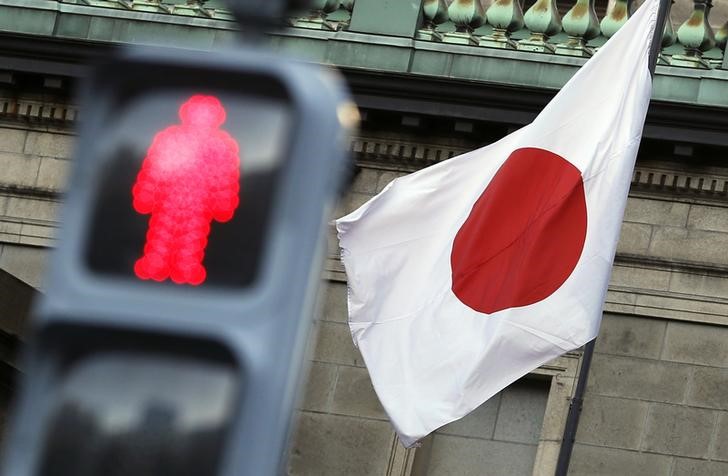TOKYO (Reuters) - Japan's index of coincident economic indicators in February fell at its fastest pace since the March 2011 earthquake, in a further sign of slowdown in the world's third-largest economy.
The index of coincident economic indicators, which consists of indicators such as industrial output, employment and retail sales data, fell a preliminary 3.2 points in February from the previous month, the Cabinet Office said on Wednesday.
It was the fastest pace of decline since the index dropped 6.6 points in March 2011 when the devastating earthquake and subsequent nuclear crisis hit the nation. And the level of the index at 110.3 was the lowest since August 2013.
"Consumer spending, exports and capital spending are sluggish and the economy lacks driving forces to propel economic growth," said Yoshiki Shinke, chief economist at Dai-ichi Life Research Institute.
"Uncertainties over the economies both in Japan and overseas as well as financial markets remain strong and it will take time for the economy to escape from the stagnant situation."
The index of leading economic indicators - compiled using data such as the number of jobs on offer and consumer sentiment - fell 2.0 points in February to 99.8, the lowest since December 2012.
The Cabinet Office kept its assessment of the coincident indicator index that showed the economy was at a standstill.
Speculation has grown that Prime Minister Shinzo Abe may delay a sales tax hike scheduled for April next year as the economy will not be able to withstand the tax increase.
The economy shrank at an annualised 1.1 percent rate in the fourth quarter last year dragged down by weak consumer spending, adding pressure on the government to expand fiscal stimulus.
